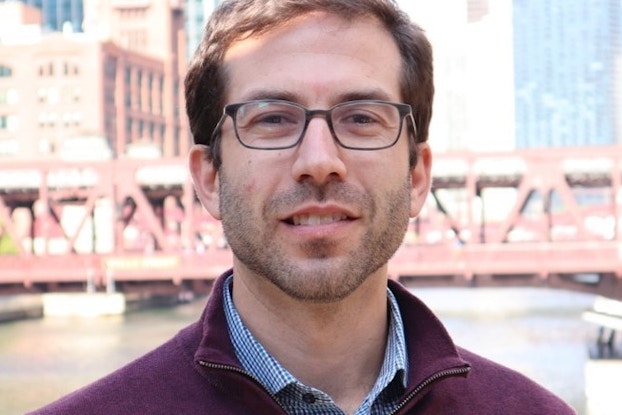
In Brooklyn, N.Y., there’s a new micro-fulfillment center under construction where robot shopping carts will scurry about, pulling items off shelves and filling online orders.
The startup behind it, Fabric, has set out to revolutionize online grocery shopping, and Kraft Heinz, one of the largest food and beverage companies in the world, is betting it will.
Fabric is one of five food-related tech companies Kraft Heinz has invested in since launching its venture capital fund, Evolv Ventures, in 2018.
Kraft Heinz and other consumer products giants have turned to corporate venture funds as a way to stay on top of emerging trends and to translate their knowledge and insights about their industries into financially rewarding investments.
Every single person I talk to expects their e-commerce business, when it normalizes after COVID, to be at least double what it was pre-COVID.
Steve Hornyak, chief commercial officer, Fabric
Corporate investing growing
Corporate venture investing has grown over the past decade, particularly in big food, as legacy companies from Kraft Heinz to Kellogg’s look to invest in and learn from disrupter brands like Halo Top ice cream and Beyond Meat, which have nabbed market share in the grocery aisle.
Between 2011 and 2015, the number of corporate venture capital funds in the United States increased 40%, from 1,068 to 1,501, and the amount those firms invested quintupled between 2012 and 2015, according to a report in the Harvard Business Review.
Unilever has had a venture fund since 2002; Kellogg’sand Tyson Foods launched funds in 2016.
As investors, Evolv Ventures and Kraft Heinz are eyeing the future, “not just what a company can do in the next six months,” Bill Pescatello, managing partner of Evolv Ventures, told CO—.
The $100 million fund, he said, is looking to invest in food-related startups with the best technology in their categories.
In the increasingly in-demand category of micro-fulfillment, for example, “we’re just more impressed by Fabric’s technology than any other major players out there,” Pescatello said.
Venture capital funding
Kraft Heinz and other consumer products giants have turned to corporate venture funds as a way to stay on top of emerging trends. If you're seeking venture capital for your business, read on.
Seeing the future of online grocery sales
For Pescatello, a visit to Israel, where Fabric was founded and where it has micro-fulfillment centers serving a major grocery chain and a pharmacy chain, was “a lightbulb moment” where he felt like he was seeing the future of online grocery sales.
The Fabric software directs robots to fill online orders in minutes, picking items from warehouse shelves, placing them in carts and sending the carts to human checkers, then routing the carts to loading bays for pickup or delivery.
Fabric can create fulfillment centers as small as 5,000 square feet that can handle hundreds of online orders a day, and allow a store to deliver those orders, or customers to pick them up, within an hour.
The automated space, stocked with the items most commonly ordered online, with zones for fresh and frozen foods as well as non-perishables, enables orders to be filled faster than having employees walk through the store picking items off shelves.
The company is talking to several potential grocery customers who expect to fulfill 1,500 online orders a day using Fabric micro-fulfillment centers.
COVID-19 ‘time machine’
Demand for Fabric’s tech has skyrocketed along with the surge in online grocery orders triggered by the COVID-19 pandemic.
“COVID-19 basically has put us all in a time machine and thrust us three to five years in the future with respect to e-commerce adoption,” Steve Hornyak, chief commercial officer at Fabric, told CO—.
“Every single person I talk to expects their e-commerce business, when it normalizes after COVID, to be at least double what it was pre-COVID,” he said. “So that is what’s causing this massive disruption in the market.”
In addition to working with grocery chains to create their own private micro-fulfillment centers, Fabric is developing multi-tenant centers that can be shared by a number of consumer goods brands looking for a better solution for order fulfillment.
The first of the multi-tenant centers in Brooklyn is expected to open this summer. The multi-tenant centers can handle all types of direct-to-consumer products, with clothing manufacturers, health and beauty brands, specialty foods, baby supply companies and other categories expressing interest in using the center, Hornyak said.
Historically, grocery e-commerce hasn’t been profitable for grocers, Pescatello said. As demand for online grocery and other e-commerce grows, “we need new systems that are more automated, more scalable, more cost effective. And that’s what really got us excited about Fabric,” he said.

Looking for leading edge technologies and lab-grown mozzarella
Pescatello, Evolv general partner Steve Sanger and Kraft Heinz launched the fund in 2018. The fund’s other investments to date are:
- New Culture – a company that is developing lactose-free, animal-free, lab-grown mozzarella cheese.
- GrubMarket– a marketplace that connects local farms with restaurants, retailers and consumers.
- Zippin– a frictionless, cashierless checkout platform.
- Flowhub, a software platform that manages inventory, point of sale, compliance and other functions for cannabis dispensaries.
For those companies, as for Fabric, “we want to help build these companies, grow them, learn from them and be partners,” Pescatello said. “And ultimately, see them exit at the highest possible valuation and return money to Kraft Heinz and our fund.”
Evolv was set up to combine the performance goals of a financial venture capital fund with the insights gained by partnering with a leading food and beverage company.
It is structured like a traditional financial fund, with Pescatello and general partner Steve Sanger investing their personal capital in the fund, with the added bonus of industry insights Kraft Heinz has access to. “We think our greatest advantage, and the reason why we can potentially beat the market and have superior returns, is that we’re working with the fifth largest food and beverage company in the world,” Pescatello said.
Evolv’s office sits in Kraft Heinz headquarters in Chicago.
The fund is in a good position right now to make future investments, Pescatello said. While older funds may be putting out fires and retreating from the market in the current crisis, “we’ve got the vast majority of our funds still to invest,” he said. “Most of our portfolio companies have 12 months-plus of cash runway, and are well capitalized. We don’t have real problem spots in our portfolio because we’re relatively new,” he said.
“We’re in the beginning of this fund,” Pescatello said. “Not the middle, not the end. We’re looking to do this for years to come, and we’re being very active through this crisis. We’re not looking to slow down, and we think there will be great opportunities in the back half of this year.”
CO— aims to bring you inspiration from leading respected experts. However, before making any business decision, you should consult a professional who can advise you based on your individual situation.
Want to read more? Be sure to follow us on LinkedIn!
CO—is committed to helping you start, run and grow your small business. Learn more about the benefits of small business membership in the U.S. Chamber of Commerce, here.







